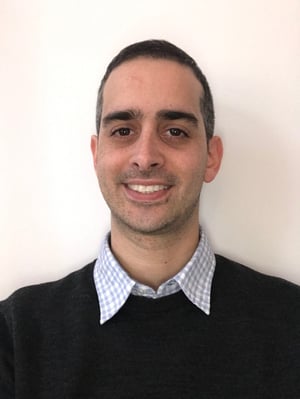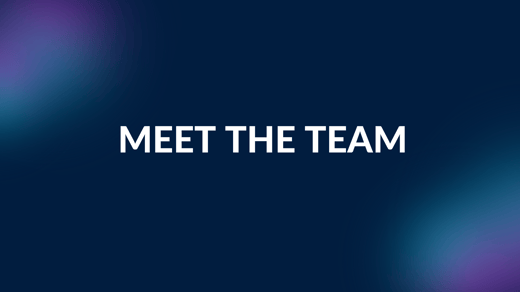Prior to joining ThoughtRiver I worked for a software company in Israel. They were project-based, which meant I got to work on a variety of web projects using different technologies. I gained experience in both back- and front-end development. This paved the way to becoming a full-stack developer. I eventually took on a senior role, leading projects from overall architecture design and development through to deployment.
 The very first time the phenomenal recruiter I’d worked with told me about ThoughtRiver and their use of AI for Natural Language Processing (NLP), I was giddy with excitement. You see, I have an overactive imagination, and so the very mention of AI had my mind reeling back to 90s Sci-Fi movies where machines take over the world. The first thing I did (after collecting myself), was pick up a book on NLP, and the more I read, the more convinced I became that I wanted to get involved.
The very first time the phenomenal recruiter I’d worked with told me about ThoughtRiver and their use of AI for Natural Language Processing (NLP), I was giddy with excitement. You see, I have an overactive imagination, and so the very mention of AI had my mind reeling back to 90s Sci-Fi movies where machines take over the world. The first thing I did (after collecting myself), was pick up a book on NLP, and the more I read, the more convinced I became that I wanted to get involved.
When interviewing for jobs in programming, it’s par for the course for candidates to undergo a technical test. The experience with ThoughtRiver was different. Sure, there was a test, but the task in it was secondary. Instead, emphasis was placed on how the code was written, whether it was organised, test-driven, and maintainable. These were values I was happy to get behind.
Plus, I kinda had my heart set on Cambridge after visiting it in my travels.
A day in the Life of an Application Engineer
As a front-end application engineer, my role revolves around the design, maintenance, and development of our front-end applications. It’s my responsibility to ensure that our apps keep to a high standard in terms of code quality, technology stack, and overall user experience. I often get feedback from our CI team, QA, and product owners on ways to enhance our apps and the direction we’re heading in, and then work toward realising those visions. I also keep my ear to the ground for developments in the ever-evolving world of front-end technology and stay informed of new best practices and concepts.
The Future of Legal Tech
My father is an architect, the old-school kind who used to build 3d models out of card stock and draft floor plans by hand on giant sheets of paper. For years it was the only world he knew, until one day he was introduced to AutoCAD. That was over ten years ago. Nowadays he’d probably laugh if you suggested working with pen and paper. I believe legal teams across the world will undergo a similar process. They will delegate more and more pre-screening to AI, until it will become unthinkable to work otherwise and manual pre-screening will become a thing of the past.
A bit more about me...
My academic background is actually in English literature. I guess it’s not that surprising since we have physics majors working at ThoughtRiver as well. In any case, during college and in the subsequent years, I wrote a full-length fantasy novel. Yet unpublished, it tells the story of a reluctant protagonist with an unusual condition that makes his body spout magic at random to disastrous and yet amusing effects.



